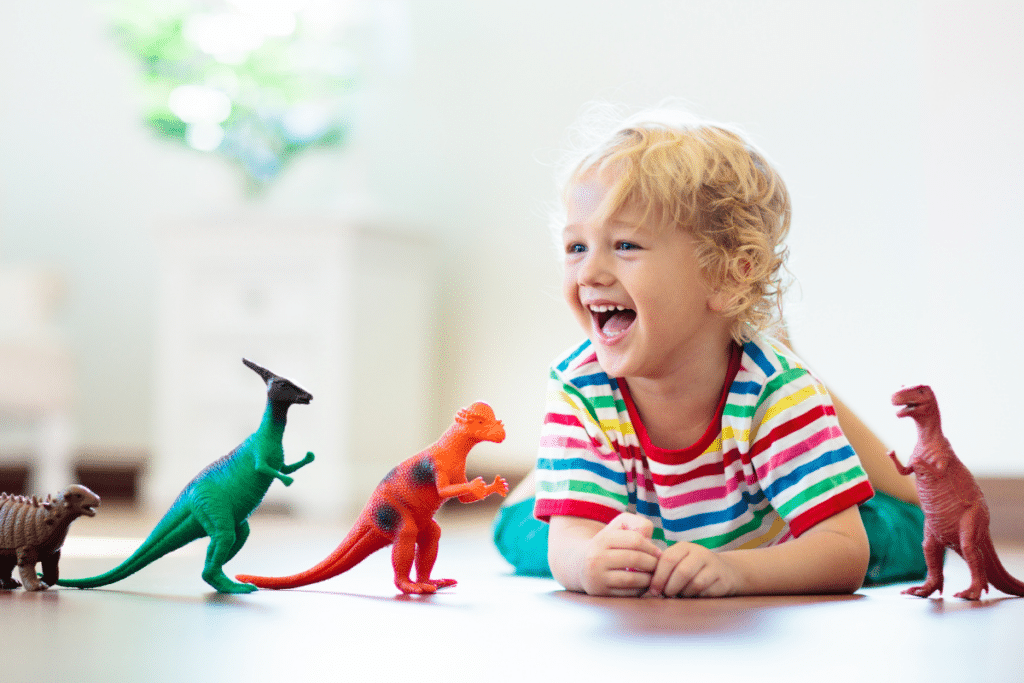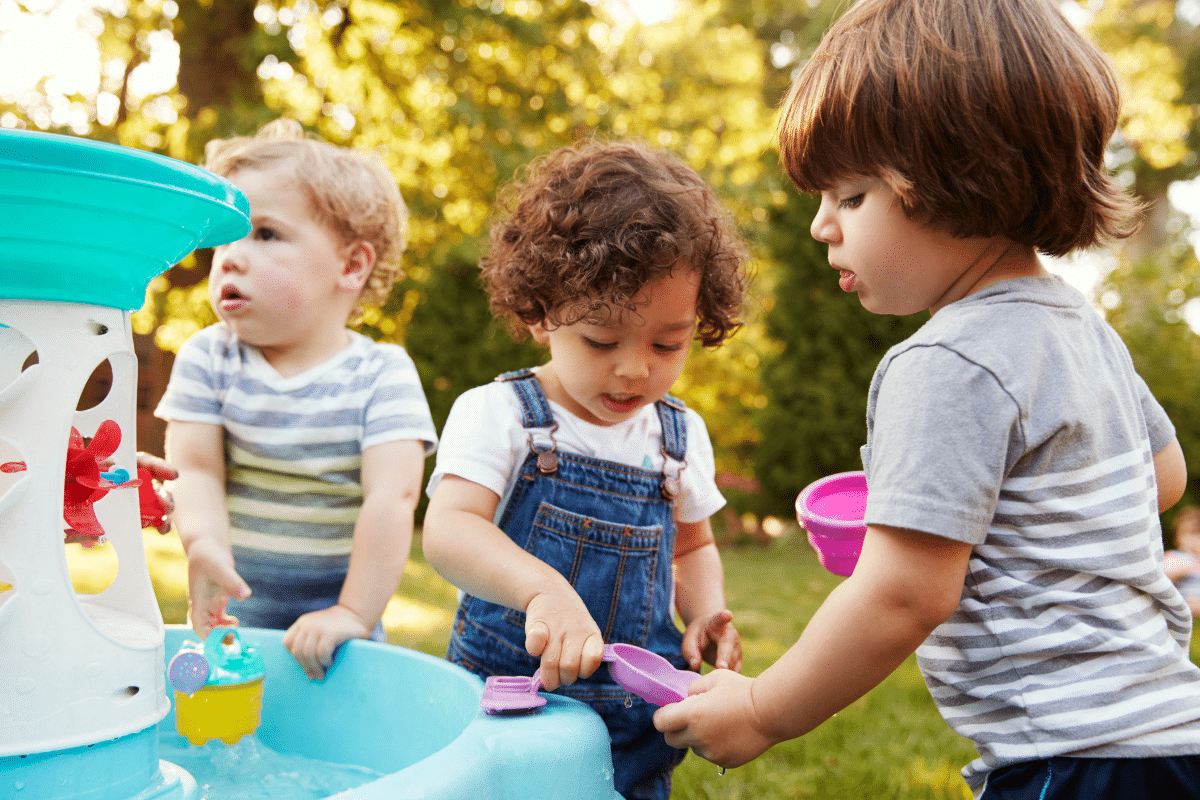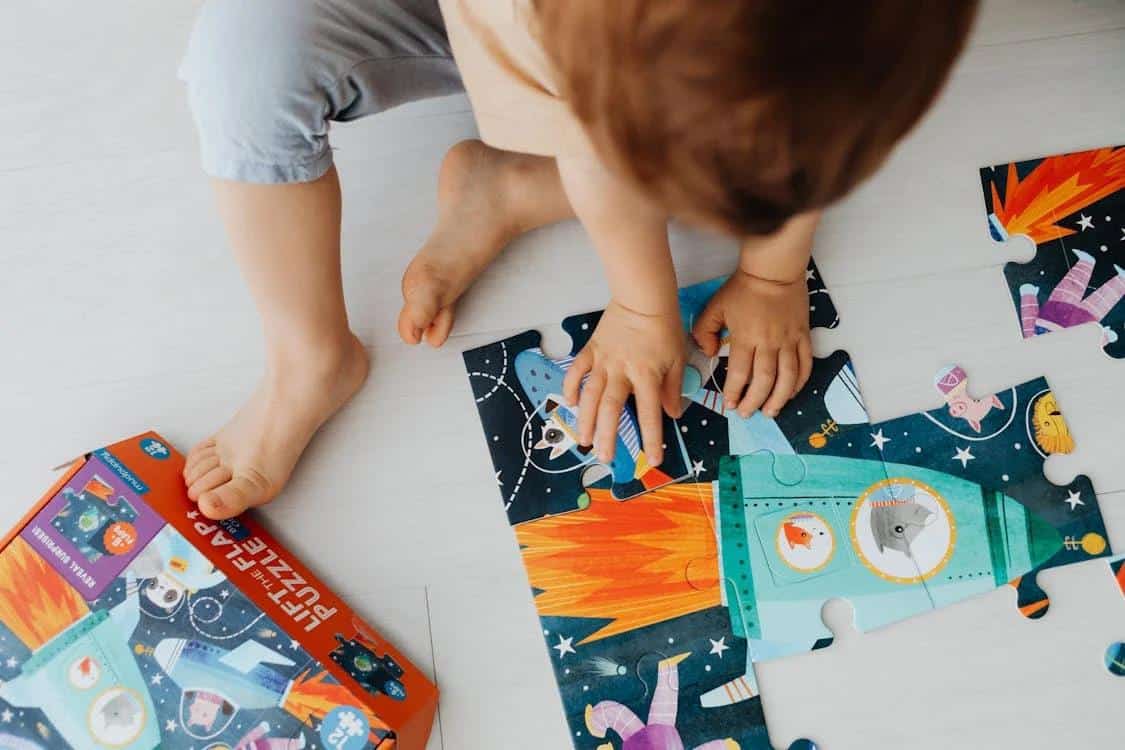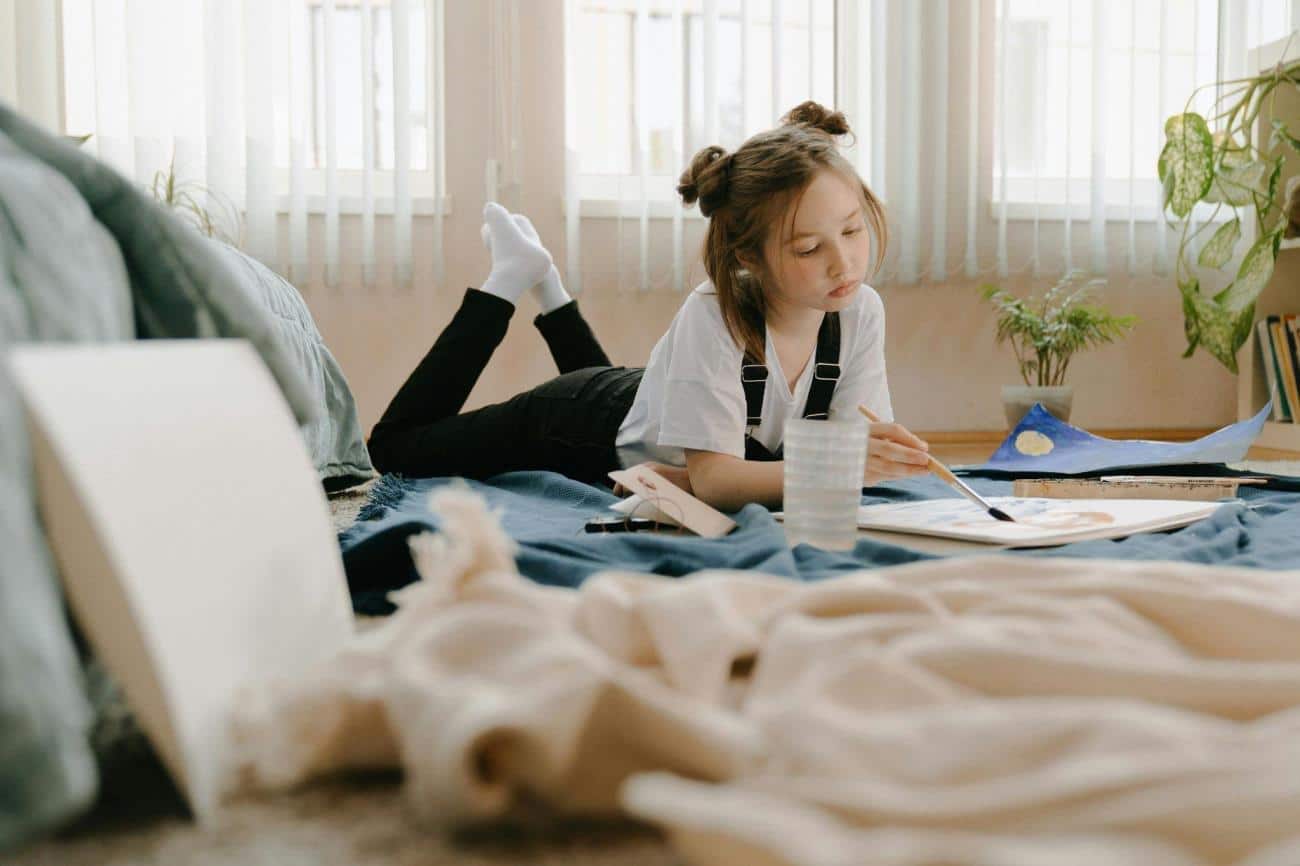
Learning Through Play: Main Stages of Play Development
Play is your child’s way of exploring the world, making sense of what they see and hear, and expressing their creativity. But play is more than just fun. Research shows it’s a powerful learning tool that helps children develop in all sorts of ways. Understanding the importance of, and the types of play in child development can give you insight into your child’s growth and how best to support them on this wonderful journey.
Main Stages of Play Development
As your child grows, their play evolves, becoming more complex and social. Let’s dive deeper into the different stages and types of play in child development and explore how it contributes to your child’s overall development:
Unoccupied Play (Birth-3 Months)
In these earliest months, a baby’s play might look like simple movements—kicking their legs, waving their arms, or turning their head to follow a sound. This unoccupied play is your baby’s way of exploring their own body and surroundings.
They’re learning how to control their movements and discovering how their body interacts with the environment. These seemingly random movements are the foundation for all future play, laying the groundwork for motor development and sensory awareness.
Solitary Play (3 Months-2 Years)
As your child grows, they’ll start to engage in solitary play, focusing on a toy or activity all by themselves. This stage is crucial for developing concentration, independence, and the ability to entertain themselves. Solitary play allows children to explore their own thoughts and interests without the influence of others. It’s a time when they can fully immerse themselves in their imagination and creativity.
During solitary play, your child is learning to solve problems on their own. For example, if they’re trying to stack blocks and they keep falling, they’re figuring out how to balance them better. This kind of independent problem-solving is an essential life skill that they’ll continue to develop as they grow.
Tip: Encourage solitary play by providing a variety of toys that stimulate different senses and skills. Rotate these toys regularly to keep their interest piqued and their learning fresh.
Spectator Play (2 Years)
Around two years old, you might notice your child watching other children play without joining in. This is spectator play, and it’s their way of learning by observing. During this stage, children are taking in how others interact with each other and with toys, which is an important step before they feel ready to jump in and play with others. They’re learning social cues, such as how to approach others, how to share, and how to take turns.
Tip: Arrange playdates or take your child to places where they can observe other children at play, such as playgrounds or playgroups. These experiences help them build the confidence they need to participate in group play when they’re ready.
Parallel Play (2+ Years)
As your child becomes more aware of other children, they’ll start to engage in parallel play.
This is when they play alongside others but aren’t necessarily interacting directly. Even though they’re not playing together, they’re learning valuable social skills just by being near other children. Parallel play is a stepping stone to more interactive forms of play.
Tip: Provide opportunities for parallel play by setting up play areas where multiple children can play side by side with their own toys. This setup encourages them to be comfortable around others while still engaging in their own activities.
Associative Play (3-4 Years)
Next comes associative play, where your child starts to interact more with others—maybe sharing toys or chatting while they play. This is one of the key play styles in child development where social interaction flourishes.
They’re not yet coordinating their activities, but they’re learning about sharing, communication, and how to be with others. This stage is all about social awareness and developing early friendships. Children begin to notice what others are doing and may even start imitating each other’s actions.
Tip: Encourage associative play by providing toys and activities that naturally promote sharing and interaction, such as building sets, art supplies, or simple group games. Praise your child when they share or invite others to play, reinforcing these positive behaviours.
Cooperative Play (4+ Years)
Finally, your child will reach the stage of cooperative play.
This is where they’ll play with others towards a common goal, like building something together or playing a group game. Cooperative play is when they really start to understand teamwork, taking turns, and the importance of rules and roles. It’s a big step in their social development and prepares them for group activities at school and beyond.
Children start to take on roles within the group—sometimes leading, sometimes following—which helps them understand different perspectives and the value of each person’s contribution.
Tip: Encourage cooperative play by introducing games that require teamwork and role-playing scenarios. This not only helps them learn to work with others but also boosts their confidence in group settings.

4 Types of Play in Child Development
Here are four key types of play that contribute significantly to child development:
Sensorimotor Play: This type of play involves exploring the world through the senses and physical actions. Babies and toddlers engage in sensorimotor play by touching, tasting, smelling, hearing, and seeing objects around them. This helps them develop motor skills, cognitive abilities, and a sense of their environment.
Pretend Play: Also known as imaginative play, this involves creating imaginary scenarios and taking on different roles. How does imaginative play help a child’s development? Children use their creativity and imagination to explore new ideas, express emotions, and develop problem-solving skills. Pretend play is essential for social and emotional development.
Social Play: This type of play involves interacting with peers and learning social skills. Children engage in social play through cooperative games, pretend play, and group activities. Social play helps children develop empathy, communication skills, and a sense of belonging.
Constructive Play: This involves building and creating things using toys, blocks, or other materials. Constructive play helps children develop fine motor skills, problem-solving abilities, and spatial awareness. It also encourages creativity and self-expression.

How You Can Support Your Child’s Play
Here’s how you can support the stages and types of play in child development to maximise the benefits for your child.
Create a Safe Space for Play: Ensure your home has spaces where your child feels safe to explore and play. Whether it’s a cosy corner with their favourite toys or a safe outdoor area where they can run around, having designated play areas helps them feel secure and free to express themselves.
Provide a Variety of Play Materials: Offer a range of toys and materials that are appropriate for their developmental stage. For example, soft toys and rattles for solitary play, blocks and puzzles for parallel play, and costumes for cooperative play. Rotate these materials regularly to keep playtime fresh and exciting.
Join in When You Can: Sometimes, the best thing you can do is simply join in. Whether it’s building a tower together or pretending to be animals, playing with your child not only enriches their experience but also strengthens your bond. It shows them that play is valuable and that you value the time spent with them.
Encourage Free Play: While structured activities have their place, don’t underestimate the power of free play. Letting your child lead the way in their playtime allows them to explore their creativity, make decisions, and solve problems on their own.
From imaginative play to memory-enhancing tasks, our classes at Shichida Australia provide a diverse range of stimuli. This holistic approach ensures well-rounded development that enriches not only their knowledge but their emotional intelligence too. Encourage your child’s play, embrace their unique style, and treasure the countless moments of learning, growth, and joy that play brings to their life.


